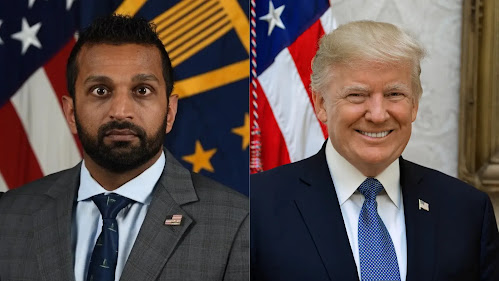President-elect Donald Trump’s decision to nominate Kash Patel as the next FBI director has sparked intense debate across the political spectrum, highlighting the sharp divide over the future of one of the nation’s most critical institutions. Patel, known for his loyalty to Trump and his outspoken criticism of the FBI, represents a clear signal of sweeping reform—or disruption—coming to the bureau under Trump’s administration.
A Bold Pick for a Controversial Role
Patel, a former Chief of Staff to the U.S. Secretary of Defense, has long been a polarizing figure in national security and legal circles. A staunch advocate of Trump’s "America First" agenda, Patel played a significant role in exposing what Trump supporters refer to as the “Russia Hoax” during the investigation into alleged Russian interference in the 2016 election.
“Kash is a brilliant lawyer, investigator, and ‘America First’ fighter,” Trump said in a statement, emphasizing Patel’s commitment to rooting out corruption and holding government agencies accountable.
Conservative Cheers, Liberal Jeers
Support for Patel among conservatives has been resounding. Key Republican figures, including Rep. Elise Stefanik and Rep. Byron Donalds, have praised the nomination as a decisive step toward reforming the FBI.
“Kash is a patriot and 100% America First,” Donalds wrote on social media. Others, like Rep. Ronny Jackson, echoed the sentiment, calling Patel the ideal candidate to “clean up” the bureau.
However, critics on the left have raised alarm bells. Former FBI acting director Andrew McCabe described the nomination as “a plan to disrupt, dismantle, and distract the FBI.” Others, including MSNBC’s Tom Nichols, warned of the potential dangers Patel’s leadership could pose to the bureau’s independence and effectiveness.
Patel's Vision: A Radical Overhaul
Patel has made no secret of his intentions to drastically reform the FBI. In a recent interview, he criticized the bureau’s bloated structure and suggested converting its iconic Hoover Building into a "museum of the Deep State." Such rhetoric resonates with Trump’s base but has fueled fears among opponents that the move signals a political purge within the FBI.
The Road Ahead
For Patel to assume the directorship, two hurdles remain: the resignation or removal of current FBI Director Christopher Wray and Senate confirmation. Wray, who has not indicated any plans to step down, has remained focused on his work. Meanwhile, Patel’s confirmation is expected to face fierce opposition in a divided Senate.
As debates rage on, Patel’s nomination underscores a broader battle over the role and independence of federal institutions. For Trump and his supporters, it represents an opportunity to reshape the FBI in their image. For critics, it is a threat to the rule of law and democratic norms.
One thing is certain: Patel’s confirmation process will be one of the most closely watched political battles of 2024.


Post a Comment